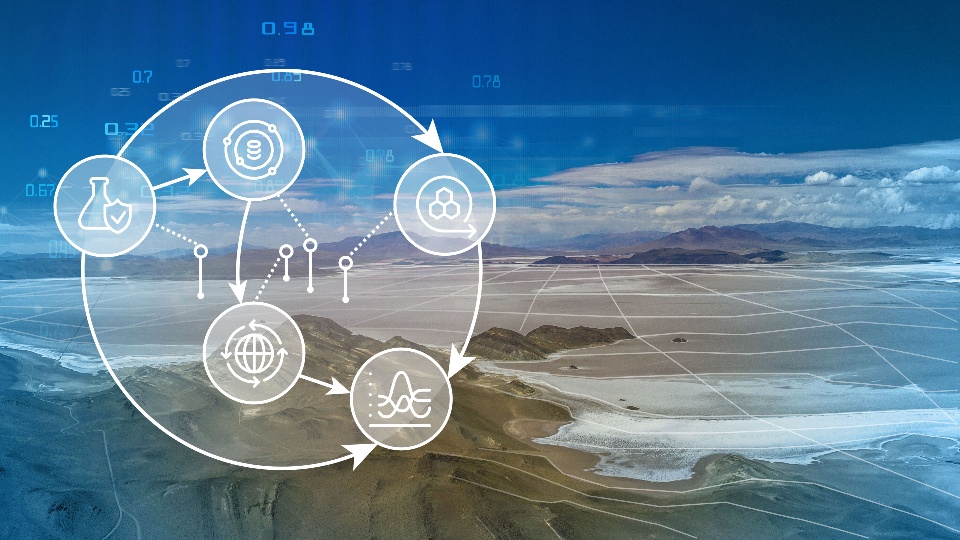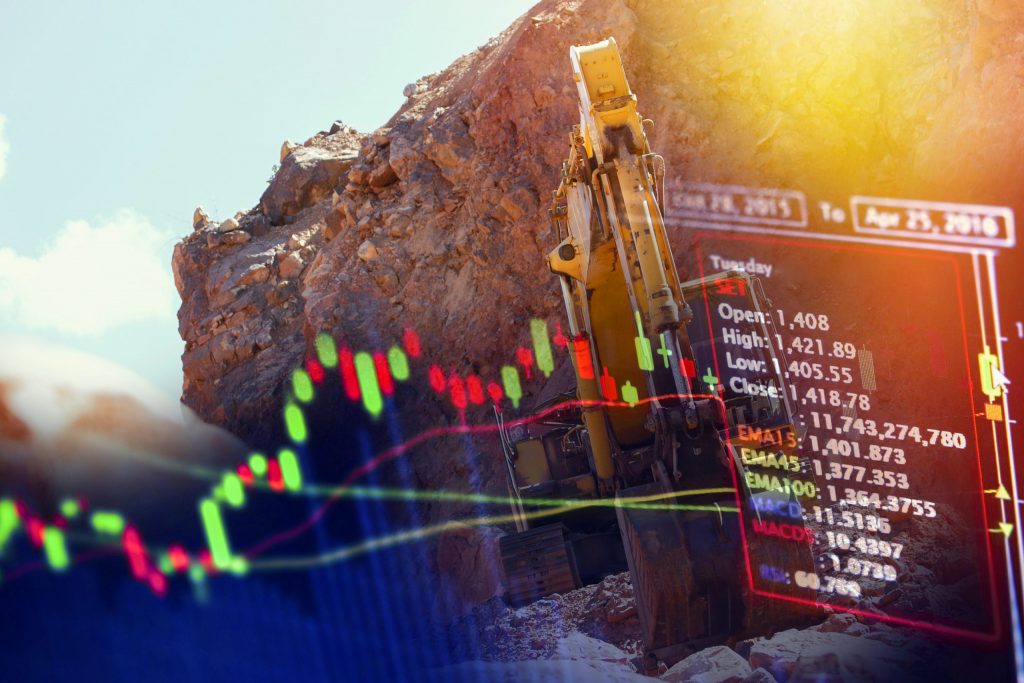Follow Claude Gonzalez and his team at Mina Vieja, as they uncover opportunities and overcome challenges on their way to transforming their business to become more sustainable with the help of virtual twin experiences – based on a true story.

Minimize Impact, Optimize Resources
Mina Vieja’s environmentally sustainable lithium processing depended on finding the catalyst that would most effectively and efficiently attract lithium in water. With Dassault Systèmes help, they found that catalyst and built a virtual picture of the mining process that convinced the Chilean government to allow Mina Vieja to move forward to the next step: modelling the geology of the salar field the company would like to lease (see our last post).
At the same time, the Dassault Systèmes/Mina Vieja team successfully co-designed electrolytes that could be tailored to meet the differing needs of battery and e-vehicle makers. Next, they needed to prove to investors that they could consistently produce enough of the high-quality lithium required to meet customer demand for this niche product.
Issue 1: Ensuring brine flow rates
“Salar fields are very sensitive environments,” said Mina Vieja’s general manager Claude Gonzalez. “We first of all needed to thoroughly understand the geology of the field to know exactly how the environment would behave during production –– specifically, whether the host rock would be porous enough to sustain the brine flow at the pumping volumes we envisioned. If the rock could not remain stable at these volumes, then we would know that our proposed production levels would not be constant enough to ensure the safety and sustainability of downstream environments and local water resources. And we would be back to the drawing board.”
Issue 2: Proving economic viability
The second issue Mina Vieja needed to tackle, provided the geology of the salar field proved to be suitable, was demonstrating that the amount of lithium that could be extracted from the field using their chemical process would be sufficient for making the company’s ready-to-use electrolyte product. Only then could they build a compelling financial and economic business case for investors.
“Investors, of course,” said Claude, “wanted reassurances about return on investment. As a company, too, we needed to be confident that this was the right way forward before we made the final decision to transform from a coal mining operation to a lithium producer.”
Issue 3: Meeting government, regulator, and investor reporting expectations
International reporting standards are stringent. “We had to be sure that whatever extraction model we developed would give the Chilean government, regulators, and investors the confidence they needed that our mineral and reserve reports were accurate and complete,” said Claude. “That meant ensuring that our reports would meet with all relevant international standards, such as the JORC Code or CIM classification.”
How they did it
Setting up a collaborative community
With the salar field now available for field visits, Claude set up a new collaborative community on Dassault Systèmes’ 3DEXPERIENCE Platform for a Mina Vieja team that included a resource geologist, a reservoir engineer, a geotechnical engineer, and an economic analyst. The platform provided the team with a central location to share data and information among themselves, and gave them a single, secure, managed-access system within which to create all models, estimates, and mineral resource and reserve reports.
Continue reading the full exclusive article in the Sustainable Mining Network community.
